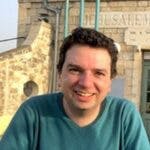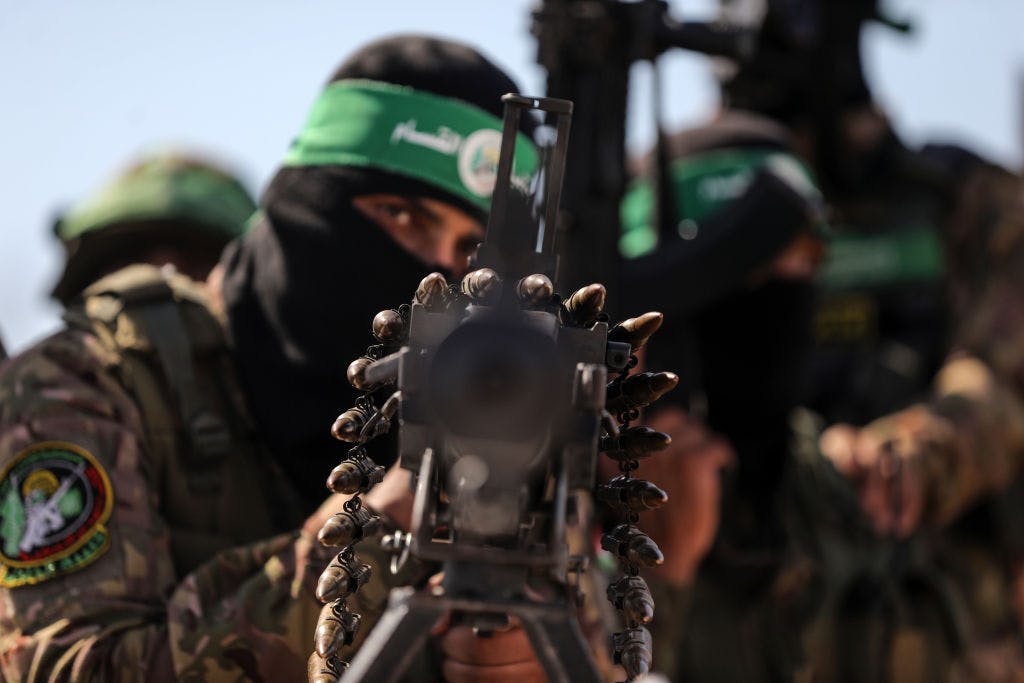Published: 18 March 2024
Last updated: 21 March 2024
At a time when interfaith dialogue programs bringing together Jews, Muslims and Christians have collapsed in so many places from Melbourne to Manhattan, there is one city where it’s still possible to bring people together who care deeply about the wellbeing of both Israelis and Palestinians. That place is Jerusalem.
Since October 7, the Sulha Peace project has brought together hundreds of people at regular bi-weekly meetings for an experience that goes far beyond dialogue. Having attended several of the meetings myself, it’s more accurate to describe these gatherings as a cross between trauma therapy and collective healing than interfaith dialogue.
Our primary aim is to humanise everyone. Our listening circles are not about arguments, and we have strict rules to prevent that
Dr Melila Hellner-Eshed
Each gathering opens with gentle music played on an acoustic guitar, a candle lighting ritual where all are welcome to make blessings or intentions for the coming hours, and a facilitated dialogue space in both a large circle and small groups. Topics include:
Name one person whose memory you would like to honour tonight.
What is deepest prayer, and deepest sadness?
What is something new that you have noticed in yourself?
When did you first meet “the other”?
And most simply, “why did you come here tonight?”
In one activity, participants where asked, “What does that dark place you afraid of look like?” They were then given plasticine to build the dark place, and then had to work with a partner on building a bridge to get out of the dark place together.
Every person is welcomed to speak in the language most comfortable to them, followed by a translation into either Arabic or Hebrew for the rest of the room. The Sulha is a place where the enmity and hatreds that are so prevalent in Jerusalem can disappear for two hours.
Sulha is a traditional Arab method of solving violent dispute. The word means “to make peace” or “reconciliation” in Arabic. It is a term signifying an agreement or settlement.
The Sulha was founded in the early days of the Second Intifada by Gabriel Meyer Halevy and Elias Jabour. Gabriel, a Jewish Argentinian-born Israeli, was devastated by the eruption of violence across his new homeland in 2000 and reached out to Elias – a veteran Palestinian Israeli peacemaker and author.
Gabriel shared with Elias his thoughts about creating a new initiative inspired by the age-old Sulha process with the aim of rebuilding trust, restoring dignity, and moving beyond the political agenda.
Dr Melila Hellner-Eshed, a professor of Jewish Mysticism at the Hartman Institute in Jerusalem and the current chair of the Sulha steering committee, spoke to The Jewish Independent about the state of the Sulha since the war. I began our conversation by asking her why Sulha was able to keep meeting when so many other interfaith dialuage groups had fallen apart.

“The reason we were able to continue meeting was because we had built years of trust between one another before October 7,” she said, adding that it was the strength of the personal connections that gave them the resilence to stay together.
In times of crisis, people feel an even greater desire to come together and create an island of normality in societies that can only see violent solutions as their path to a secure and peaceful future.
“The Sulha is about spiritual activism, not narratives,” Hellner-Eshed explained. “It’s centred around our ability to meet as humans created in image of God. The encounter is not about justice or trying to write some kind of political statements. Our primary aim is to humanise everyone. Our listening circles are not about arguments, and we have strict rules to prevent that.”
In one of the circles I attended, an Arab woman shared her fear that after October 7, the Israeli government may be expel her from her home in Jabel Mukaber, a Palestinian neighbourhood in East Jerusalem. An Israeli man then expressed concern for his child serving as a soldier in the IDF. Neither asked questions of one another, but both held the space for their fears.
An elderly woman wearing a hijab told the group that five members of her husband’s family had been killed in Gaza that week. She spoke slowly and from her heart about how she asked the survivors of the attack if they were ok with her coming to meet with Jews the following night. “Yes” they said. “Please do anything you can to help us have a better future.” Her story left many people in the room visibly moved.
Over the years, both the physical and metaphorical walls have grown higher between Israelis and Palestinians. Sulha helps make small cracks in these walls. That said, no one in the Sulha thinks the movement will bring peace, as they all know that this can only come through a political process, not friendship or empathy.
Political solutions will only happen when leaders feel they serve both their own personal interest and those of the people they represent. Sadly, such leaders are nowhere in sight. In the meantime, the Sulha is trying to lay the groundwork for the day when they emerge. It continues to cultivate hearts, to be a place where people can come together, in sadness and in love, celebrating and mourning both the holy and the broken.





Comments
No comments on this article yet. Be the first to add your thoughts.